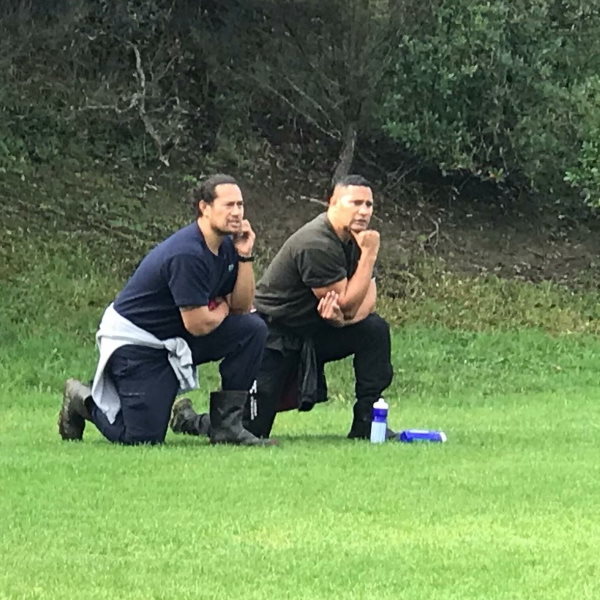
All
Pre-season
As a coach in children's sport, you will likely leave an impression on them. As such your actions will have a lasting impact on whether they grow to love the game, the club and the sport.
- Categoryresponsibilities | getting-started | culture
- Last UpdatedJan 2022
Whether you are training the youngest group at J8 or the experienced in J1. Doing your own coach pre-season workout will set you up for a great season. By this, I mean taking some time to plan what sort of coach you are going to be this year.
Each coach is going to be different about how they want to approach the role for their team and season but one thing every coach should be doing is planning for the kids they will be in charge of and taking a development approach. A development approach ensures that all players are developing not just in physical abilities but in participation, culture and love for the game. As a coach, your job is to provide a quality of experience that has the player wanting to come back and play again next season.
The Experience
The number one reason kids drop out of sport is that they do not enjoy the experience while the number one reason kids continue playing sport is because of the experience they have. A players experience is influenced by many things with the coaches, managers, parents and fellow players being top of the list. Playing with their mates is also a hugely influential factor.
With this in mind, one of your pre-season tasks is to decide on what sort of experience you want to create and what are things you will do to achieve that.
Consider setting a date sometime into the season to review your progress and to answer two questions. Am I helping my players to have a quality sporting experience? Am I helping my players fall in love with the sport?
You are not alone
You don't have to do this by yourself. The junior committee can help you with questions and resources to achieve your goals. We can put you in touch with other coaches or be a simple sounding board to talk over what you are doing. Keep in mind we want to help you. We want you to become a great coach. We want you to enjoy the experience, (the experience factor applies to you just as much as it does your players). We want you to come back and coach again.
Easier said than done
It's easy to say 'provide a great experience' but how do you do that? To start off with we have been providing a 'Coach the Coaches' course pre-season at the club for all junior coaches. With a drink in hand, it is a straight to the point talk about training kids and it is a great place to raise questions and get ideas. Contact the junior committee to see when and where this is happening.
The truth is every kid is unique. So start with this in mind and that what you do won't work for every player. You will need to observe, adjust, apply and repeat. Keep this point in mind and you will avoid thinking you are not doing a good job. If you are thinking, how can I engage that kid? How can I ramp up the team spirit? Where can I find some advice? How do I make drills more fun? If you are doing this, you are doing a GREAT job.
Here are some concepts taken from Sport New Zealand about what children need in a sporting environment.
Inspiration
Children need challenges that are not too easy and not too hard and that with effort good things will come. The trick here is to first believe in the child. Provide challenges that they can achieve and then highlight and point out their progress. In our 'Coach the Coaches' talks, one of our topics is how to teach a new skill.
Connection
It is very important that a child feels a sense of belonging with their coaches and peers. Meaning they feel liked by their coach, have friends on the team and have a role to play in the game. Critically, children need to feel loved and supported by their parents.
Empowerment
When children feel trusted and their feelings and ideas are valued, they are more likely to feel self resilient and self-directed. How this is done at different age groups is very different but at any age, it always starts with listening.
Play
They need to play games! Games are best when they challenge movement, teamwork and imagination in new and exciting ways. Play is the key to deeper learning of the sport. Research shows that children will have more fun and learn more by playing adaptive games. By using small-sided and modified games that are appropriate for the players physical and social stages you will get a better learning result.
Variety
Children need a chance to try out different sports. Pressure to focus on one sport often leads to early dissatisfaction and overuse injuries. We want our plays to love rugby but they can still love it and play another sport. Inspire and empower them that they can learn and play anything. Connect with them and help them feel part of the team. They may go on to play competitive volleyball but if they always talk with pride that they played rugby and they head off to All Black test matches then you can be assured you created a love for the game and a great experience.
Planning
Planning is the single most important thing you can do as a coach. If you plan ahead you will find the whole process much easier. The second most important thing you can do is to then communicate that plan.
Here are some practical steps you may want to look at doing.
Pre-season
Confirm your team, players, managers and any parent helpers. Talk with your manager and other coaches about the season ahead. Who will do what role? How do you think you will approach it? Help you may need. Making sure you are all talking the same message.
Find people that may want to help in little ways. Perhaps someone wants to be the gear manager. Team photographer. Statistician. If anyone wants to help in some little way encourage it and bring them onboard.
Source and confirm the resources and equipment you need. Training fields and times.
Communicate to all the parents your approach to the season and your vision. Start with just the pre-season and the first few games rather than the whole season.
Plan a parent meeting to talk and socialise about the season ahead.
Get those first trainings underway. And use this time to evaluate your players and what you may need to do as a coach.
Plan and organise your coaching around the players you have. Not the players you want.
In-Season
Plan your training. Have a 3 or 4 week goal as well as what you will do at each training.
Set some dates to review how the season is going. What's working well, what's not. Invite an outsider to help you talk through it all and continue to make plans.
Design your game day preparation and coaching. In-game coaching and post-match coaching. Keep in mind your parents and how they contribute to this game day environment.
End-of/Post-Season
Yes, you guessed it. Have another meeting to review your season. Talk about the end of year awards and how to finish the season.
Seems like a lot of meetings. Hate meetings? Call them 'Drinks'. These don't have to be serious or long and should be a social occiasion. They can be a good chance to let off some steam and put it all in persepctive.
It is only junior rugby.

